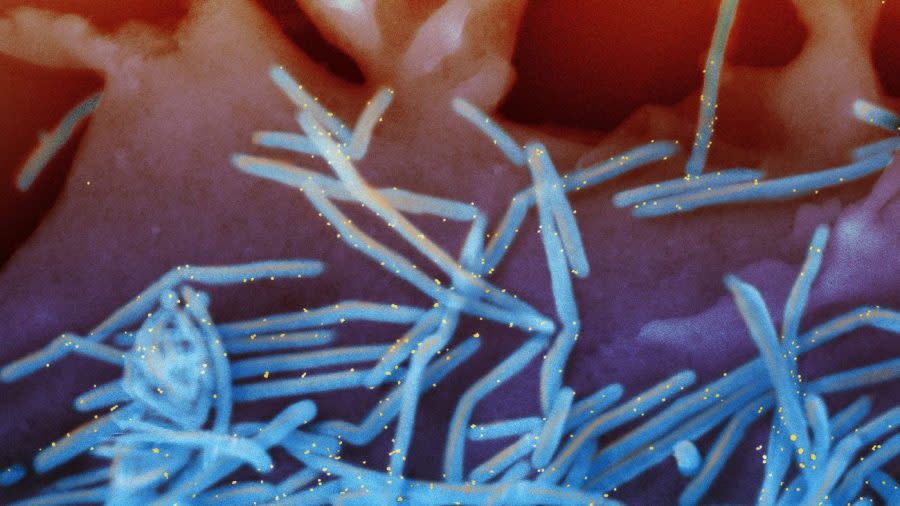CDC panel recommends drug that prevents RSV for babies

The expert advisory board dealing with immunizations for the Centers for Disease Control and Prevention (CDC) voted unanimously Thursday to recommend a new treatment for preventing RSV in infants and toddlers.
The voting members of the CDC’s Advisory Committee on Immunization Practices (ACIP) unanimously voted yes to recommending that the RSV monoclonal antibody treatment Nirsevimab be administered to infants younger than 8 months in their first RSV season, as well as children aged between 8 and 19 months who are at a higher risk of developing severe RSV cases and are entering their second season.
Nirsevimab, also named Beyfortus commercially, is co-developed by Sanofi and AstraZeneca.
“Today, we have turned the corner on the threat of RSV to our youngest, most vulnerable population,” Sanofi Executive Vice President Thomas Triomphe said in a statement. “The ACIP’s unanimous recommendations for routine use of Beyfortus and inclusion in the Vaccines for Children program are critical steps toward providing millions of parents in the U.S. with the ability to protect their babies through their first RSV season, when they are most susceptible to severe RSV disease.”
Nirsevimab is not a traditional vaccine, but an antibody treatment that aims to reduce the risk of severe illness and hospitalization among at-risk groups. While it is not a traditional vaccine, the ACIP voted on Thursday on a resolution to include Beyfortus in the federally funded Vaccines For Children (VFC) program. The CDC had determined that it was eligible for inclusion given there is no statutory definition of vaccines in the relevant legislation.
The Food and Drug Administration (FDA) approved Beyfortus last month. Demand for an effective RSV treatment rose after a bigger, earlier-than-usual surge occurred among young children and infants last winter.
Using monoclonal antibodies for severe disease prevention is significantly less common than vaccinations, which are a form of active immunization. By reducing disease severity and risk for hospitalization, Beyfortus could reduce transmission of the virus.
The VFC provides vaccines to children at no cost who might otherwise be unable to get immunized due to an inability to pay. The vaccines that eligible children are able to get are recommended by the ACIP. This means eligible families will not be on the hook for the $495 list price for Beyfortus — with the VCF price set at $395. Some board members expressed disappointment at the set price for the treatment on Thursday.
José R. Romero, Director of the National Center for Immunization and Respiratory Diseases, called the vote “historic.”
“I think that we will look back on this in a short period of time and see what a major impact this vote has had on the health and wellbeing of children in the United States. I think that this will mark one of the major accomplishments of the ACIP,” said Romero.
ACIP member Helen Keipp Talbot said she was “very excited” about the vote and said she believed the new treatment will be life changing. Talbot acknowledged, however, that there are logistical challenges to deal with, in terms of getting the antibodies to the patients who stand to benefit.
Sterling Ransone, board chair of the American Academy of Family Physicians and a practicing family physician in Virginia, shared in the ACIP’s excitement on Thursday.
“This gives us another tool in our toolbox to help prevent disease and help us keep our patients out of the hospital. This has been a fantastic yearn for humankind in its fight against respiratory syncytial virus,” Ransone told The Hill.
Given that Beyfortus is recommended for children entering their first or second RSV season, drug manufacturers and health authorities are cutting it close when it comes to getting it to families in time, with normal RSV seasons lasting between the fall and spring.
Ransone recommended that parents who are interested in getting the treatment for their children should find a trusted family doctor if they do not have one already. He acknowledged that anti-vaccine sentiment has worsened since the COVID-19 pandemic but still said the main obstacle for families wanting vaccinations is cost, not conspiracy.
“Being able to answer their questions and help them make the best decision to keep themselves and their families healthy. — it’s really important. And that’s one thing that I’ve really, hopefully been able to do for the past several years ago,” Ransone said.
— Updated at 6:44 p.m.
For the latest news, weather, sports, and streaming video, head to The Hill.

